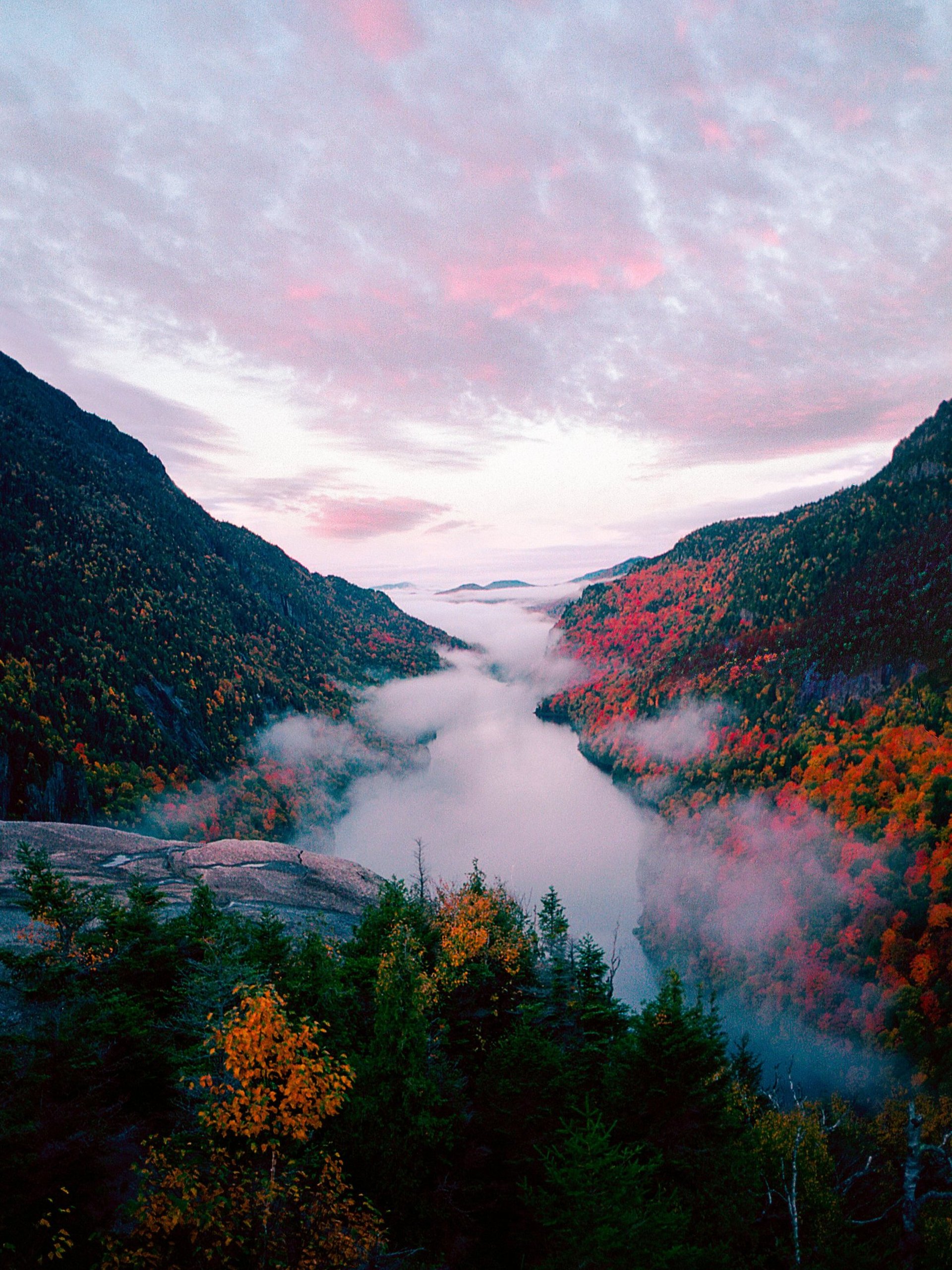
Peaks & Valleys | Interview with Nevin Johnson
@nev.in.color || https://nevinjohnson.com
INTERVIEWS
1/26/2024
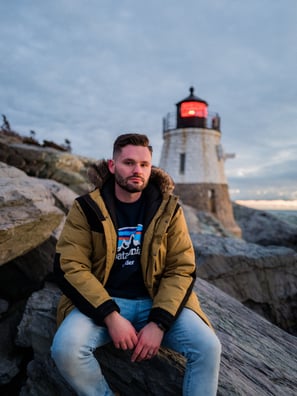

The artist's journey is not without its peaks and valleys. But an even greater assurance is that art reflects the values of its creators. Nevin Johnson's awestruck photos takes these certainties quite literally. His portfolio is composed of the great outdoors and reflects an even greater value of his: Anywhere can be beautiful.
Nevin is a talented photographer based in Philadelphia, USA and his photography has pushed him to see the world in a way unbeknownst to him. A man of many identities: a family man, a Jiujitsu martial artist, and an outdoorsman. I had an amazing opportunity to sit down and learn about his path to a photographer and glimpse into his story behind the viewfinder.
To see more of Nevin check out his website https://nevinjohnson.com or follow him on Instagram @nev.in.color. He also recently completed a Web3 project called Before We Wake. A 5 year long project with a book scheduled to release early to mid spring of this year.
Nevin Johnson
I read in your about page that a trip to Banff National Park with your family is what kickstarted your love for photography. Could you tell me a little bit about that trip and how has your passion grown since?
I've always been an outdoors guy. I grew up doing Boy Scouts with my dad and my brother, we camped a lot, and I did a lot of readiness adventuring. I fell away from that as I became an adult but we did this RV tour through the Canadian Rockies, where Banff is, and man it is one of the most beautiful places I've ever been. It was where I was asked myself, “How do I share what I'm feeling with other people right now, and how do I bring that back?”
I actually had a camera, an A6000, that I bought to take photos for product stuff for jujitsu, which is my other passion. It was collecting dust on the shelf and it's funny because I had a conversation with my wife where I said, “Oh, maybe I should just pick up one of these Polaroid cameras.” She said, “Why don't you just learn how to actually use the camera you have?” I'm glad she pushed me to do that.
From then on, I pulled up on YouTube and there was an intro to photography. I didn't know what shutter speed, aperture, or ISO was and it was a learning process. I took maybe six months of dog s*** photos but I went everyday, taking photos and editing them. I had to teach myself how to read a scene and what makes a photograph compelling. It was a long process and one that was very much fun to do.
There's certain things in your life where you do it once and you're like, “This is what I do now.” I've only had that happen twice in my life—when I picked up a camera and when I started jiu jitsu. You really embrace it and it just becomes a part of you. I look back and see how far I’ve come. If it’s worthwhile doing, it takes time. The tough thing is, you have to really resonate with whatever you're doing to go through the pain of being an amateur. It's not easy and you get discouraged. I think the real sign of growth is where you become almost unhappy with what you're doing because you know you can do better. It has peaks and valleys, I definitely remember where I was unhappy with how my photos look. It was just a matter of keeping at it and figuring out what I wanted to do to make the photos that I wanted to.


As It Should Be by Nevin Johnson
You’ve stated on your website that your other career involves working with light. How do the expertise of both careers translate to each other?
Yeah. So a little bit more of a background I work in electrical distribution in Philadelphia. My customers are electrical contractors and I specialize in lighting, specifically large scale lighting projects. It's not the most glamorous but I like it.
What I do think about having a day job with this is. It allows me to keep photography completely passionate. What do I mean by that? That means I get to be very choosy with opportunities that come my way. I do have a couple projects this year, which is pretty fun. For instance, I've worked with Cruise America in the past and that was really fun. I've gotten to photograph finished spaces for my actual day job but for the most part I just like to get out and do things that I enjoy doing.
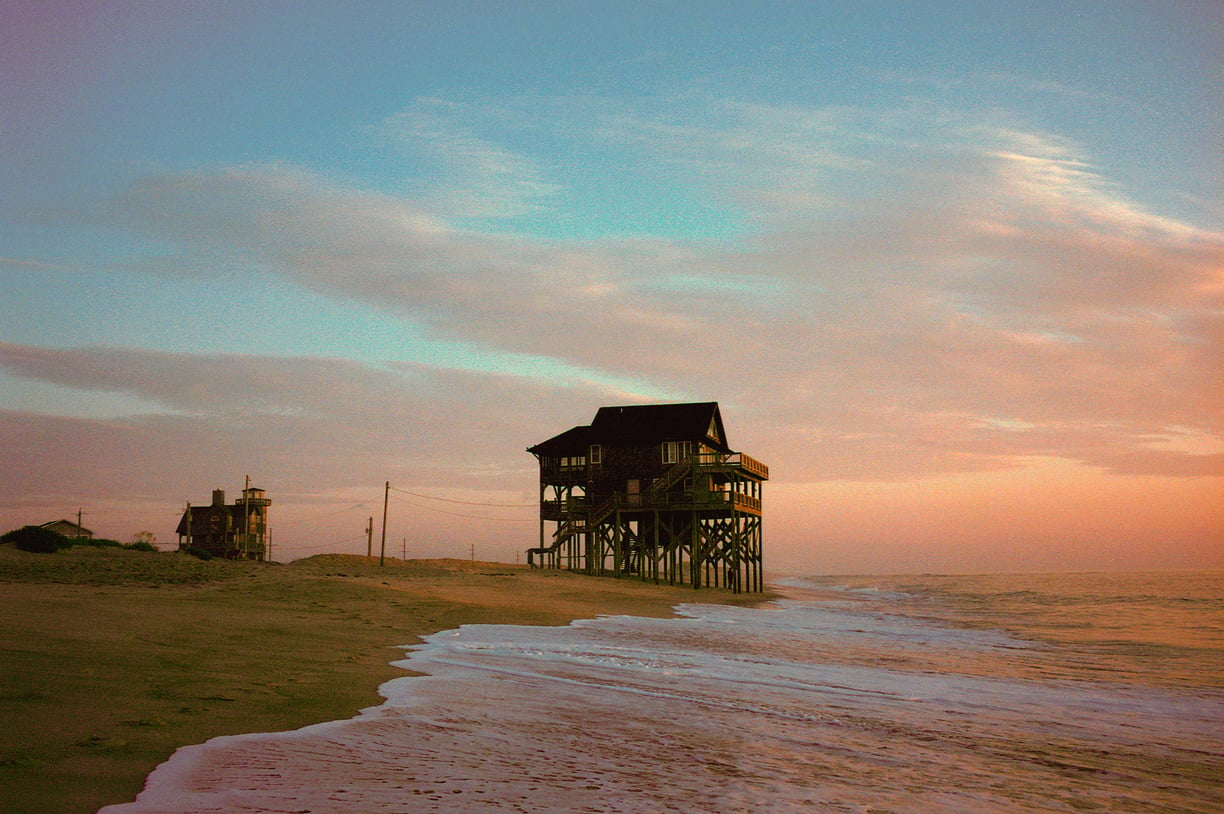

Alone Together by Nevin Johnson
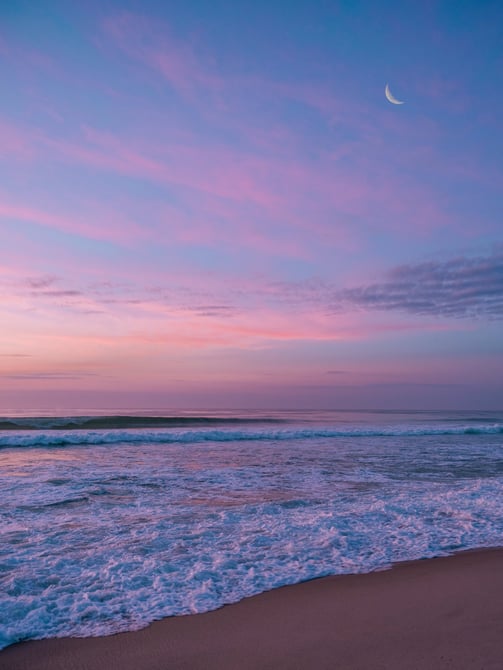

If you had to pick between the two, photography or your current business, what would you pick?
Well I would have to attribute it to something like this—the top 1% of athletes, like Conor McGregor, makes millions and millions of dollars, right? The average UFC fighter is nowhere near that. If we're boxing the same way, you got to be the 1% of 1%. This is all preface because I have a wife, a child, and a house. I don't feel it's responsible for me in my life to go full time because it's fickle. Some months, you're gonna roll, you're gonna get a couple gigs and that’s great, but it's not guaranteed paycheck. So for somebody in their young 20’s that's not married or is married and doesn't have a kid, it makes sense. For me, it’s cool because I get to keep it passionate. I get to keep doing projects that only I want to do and still provide for my family.
I have some good friends that are 23-24, and a bunch of friends who are in their late 20’s, but they're still doing it. I got married very young, so I've always had some responsibility and I picked up photography after I had started my career so for me it just never lined up. I didn't graduate from high school or college and think, “Alright, now's the time to do it.” I know people who've done it and I actually love that. I think that's really, really awesome about this art—there’s space and there's room for everybody. There's room for people who want to get after it, live in their van or their truck, and go see the world. Some days I'm envious of that and that's really cool and I get to live vicariously through my friends who do that. But for me, every quarter, I’ll take a long weekend and go hangout with my photography buddies and shoot a project or whatever it is. So there's room for everybody to enjoy art in whatever manner they want to.
If I had to never make another dollar on photography ever again, that would be fine. I'd still do it. But again it's very circumstantial based, I don’t purely discourage others from doing it. This is for me. I want to be a good father and provide for my family.
What Will Be Will Be by Nevin Johnson
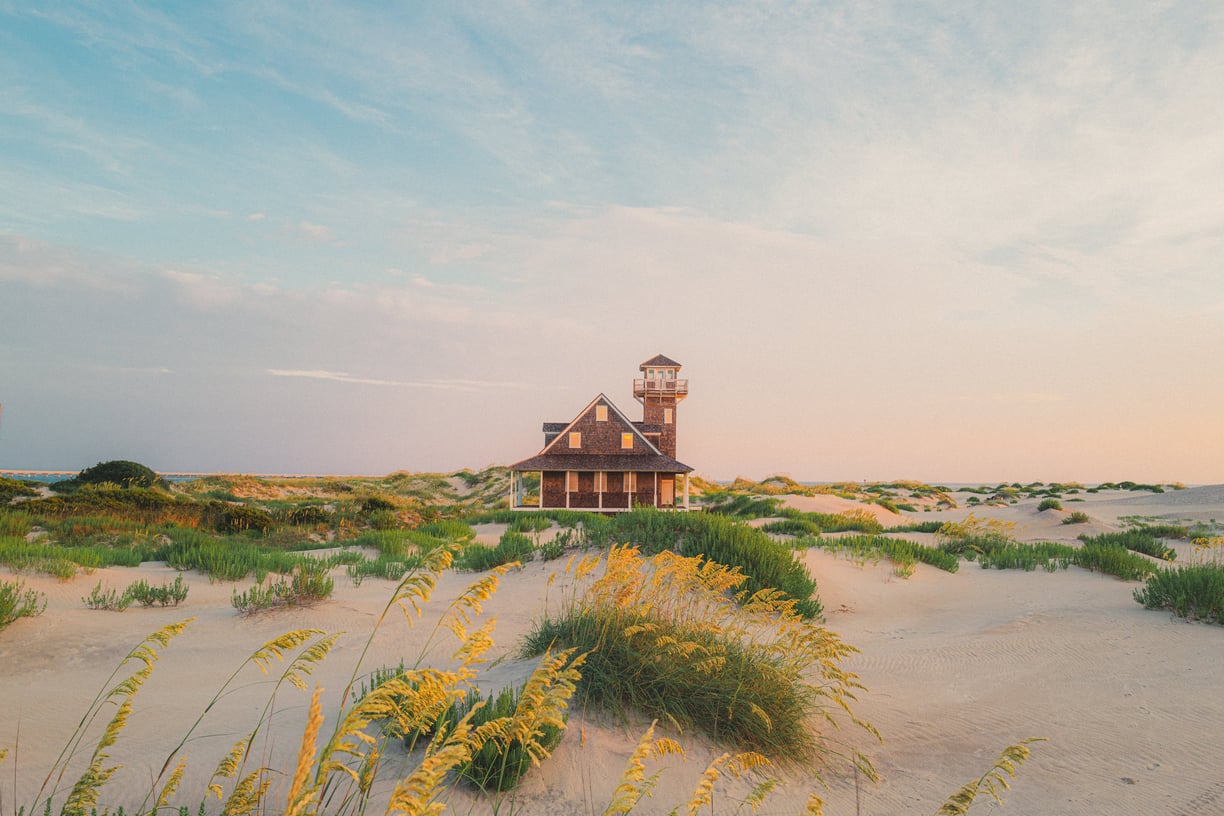

First Light by Nevin Johnson
What were some messages in your photography when you first started? How has it changed over the years?
No, I would say it's pretty much the same. The world has some really cool things, it's quite beautiful. I'm based in Philadelphia and the nice thing is that it isn't known for landscapes or anything like that. One of my pride and joys is shooting New Jersey. People give it such a bad rap but it's also very beautiful. Look if I'm gonna feel myself a little bit, I think I showed the beauty of the New Jersey shoreline and I would argue better than anybody else. The world's a beautiful place and you just need to know where to look and how to look. Really. It’s really about noticing and being present. That's what I really value—Anywhere can be beautiful.
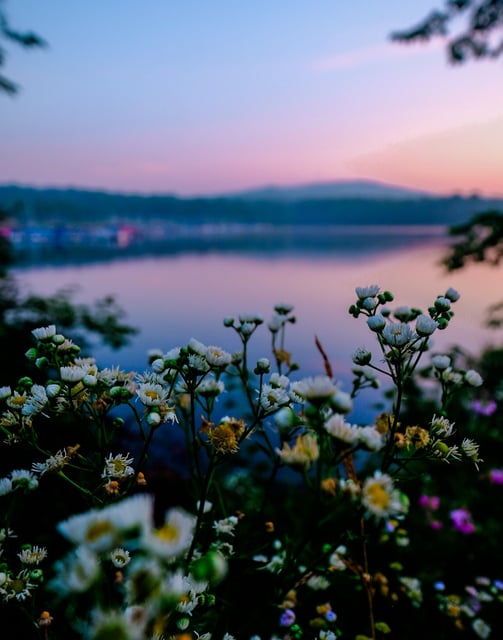

Darkbloom by Nevin Johnson
Do you have any photographers, whether in your area or outside, that have influenced or inspired your work?
For people looking to get inspired, just go on Instagram and search the hashtags and there's some pretty good feature pages. I got away from that and started connecting with people who consistently put out photography that I resonate with. One of the first people I remember was Alex Henson. He's a West Coast based photographer in the US. I really enjoy his work. It's fun because the people that I've become good friends with were just people I was getting to know while working through photography. They have become good friends and I admire their work. I'll just name a few like Jakob LR on Instagram. Nathaniel Billings is another guy that I really enjoy. Emilie Hofferber. She is like me where it's about 50/50 film and digital.
It's a community, you know? You just start to meet people, you resonate with them, or you just comment on their stuff and build relationships with them that way. But I also try not to idolize folks. I feel like that doesn't do anything for you, it can lead to you resenting your own photography. I'd rather just appreciate folks who are out there doing it and then focus on my own craft.
Shooting with film always involves some level of preparation. Outdoor photography is no different. What is your approach to preparing for film photography for the great outdoors?
For me I find a film stock or two that you know exactly how to shoot in almost any scenario. I think that inherently limits you to a 400 or 800 speed film. Like shooting Ektar, you gotta know if you have enough light or do you need a tripod. You gotta really know how film works and what each individual film stock does. I'm going to Oregon, which this time of year is going to be pretty rainy, and I'm bringing mostly Portra 400 just because I like that film stock a lot, shocking I know haha. I’m also bringing some Portra 800, some Cinestill 800T, and then one roll of Ektar. My thought process is that 400 is versatile and I always prefer to, at the best that I can, not shoot with the tripod. I don't like shooting with a tripod, if I have to, I will.
But honestly, I think it is just knowing how film works so that when the changing scenarios and changing scenes are presented in front of you, you know how to handle them. Trial and error. It's just it's one of those things, you got to learn by just doing it.
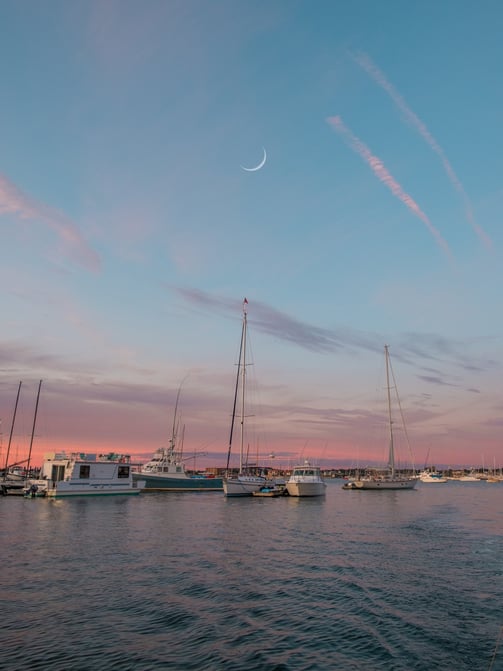

Safe Harbors by Nevin Johnson
A fellow photographer once asked me about the duality between capturing a moment and putting the camera down and living one for yourself. With how vibrant your photography is and beautiful your locations are, what would you say to that duality? Does it ever get exhausting shooting over ‘living’?
Yes, this is actually one of the best questions that I've been asked because I found myself pretty much in the same boat. As a warning to film photographers. There's so many different cameras and they all do different things, which is something that digital photography isn't really about. You've got the Mamiya 7 which shoots 6:7, and then a Pano 35mm, and a 35mm. At one point I had three or four different cameras: a medium format, point and shoot, 35mm, digital and a drone. I vividly remember walking away from a scene and being like, “I got a lot of good stuff but man, did I really enjoy that?
So my medium format and my Pano and I pretty much only shoot with an M6 now. I figured if I'm going to shoot film, and film is expensive, there's really no need for me to double shoot medium format. Might as well get the most bang for my buck and use 35mm.
So what I did at that point was consolidate. For instance, my bag for Oregon is a drone, my M6, the Q2, and then my GFX. The M6 with 35mm and the Q2, is my preferred setup. I do like having my GFX simply because I can put a telephoto lens on it. I mean, I have a Canon EOS with a a 24-105. I guess conceivably I could bring that on this trip. See dude, I'm talking myself into it again.
Man, when you're in a scene, make sure you get it. Make sure you take your time if you're shooting on film, compose it properly. Then just enjoy it. It's easy to get wrapped up in trying to capture everything.
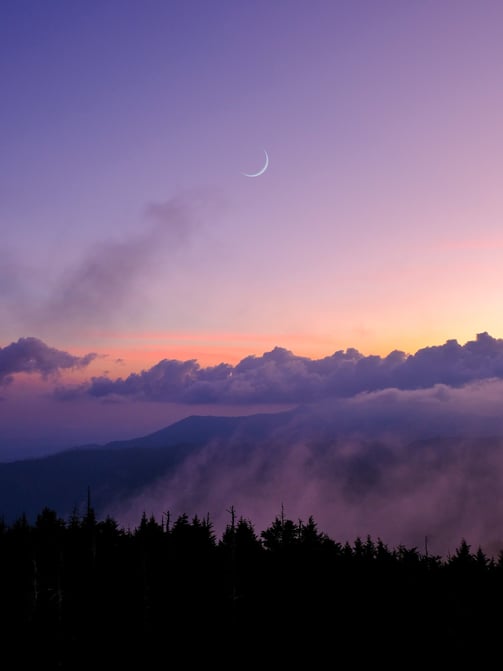

The Sun Sleeps by Nevin Johnson
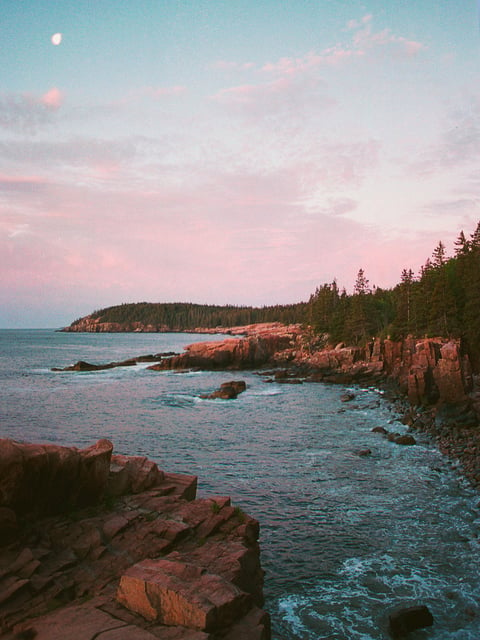

What is a question that is never asked to photographers?
I'm not even really sure. I guess I have more of a statement-like question: Why are you doing it? And that leads into being intentional—are you being intentional about your work? I guess that would be the question that I would say.
You know, it's one thing to just want to go out and see a nice sunset, there's nothing wrong with it. But are you trying to tell a story? And are you being intentional about how you're doing it? Like everything I've talked about previously, you gotta learn how to see the world. Even if it is just taking photos of the sunset. Are you doing it in a manner that's going to move somebody? What is this story that you're trying to tell? Intentionality is really important to me because, especially for me, if I'm out photographing and I could be spending time with my family and I'm not, why am I doing this? I don't want to ask if it’s worth it, but I want to have a good answer about my work.
Any tips for beginning photographers?
Really push and push and push and don't give up. If you're really interested in becoming a photographer, there are peaks and valleys. There are gonna be times where you’re like “Man, I'm good at this. I can make this work” and then there's gonna be times where you’re like, “I suck. Everything I do is bad.” That's OK. That’s normal. That's showing signs of growth and that you are continuing to push through and just do you. There's no growth without struggle. I think for you to get to a point where you're happy with your own work there needs to be a little bit of struggle. You need to work at it, it's a muscle, it's a creative muscle. Just like athletes, some people are going to be more inclined to be better right off the bat. But if you put the time in you can develop your own voice.
That's another thing, to caveat to that—find your own voice in it. I would say a good way to start is to find people that you like and try to emulate it. But that's only to learn, right? You don't want your voice to be somebody else’s. Learn how to telephone them or how to tell a story. Learn how to compose a photo. All the basics and then learn how to edit. To learn from other people, that's fine. That's part of the process. But at a certain point, and this is down the road a little, you have to have your own voice.
You can't be somebody else's voice, you gotta develop your own distinct style. I think for me, when somebody says, “Yeah, I know that photo was you before I saw your name on it.” Or something like that, that’s when you know you've reached the next level.
In my view of this, the photographer’s journey from there is, “What story are you going to tell? Do you have your own voice now?” So tell a story but there's that whole preface, right? That whole first chapter of learning how to do this s***. It takes a while, so don't get discouraged.
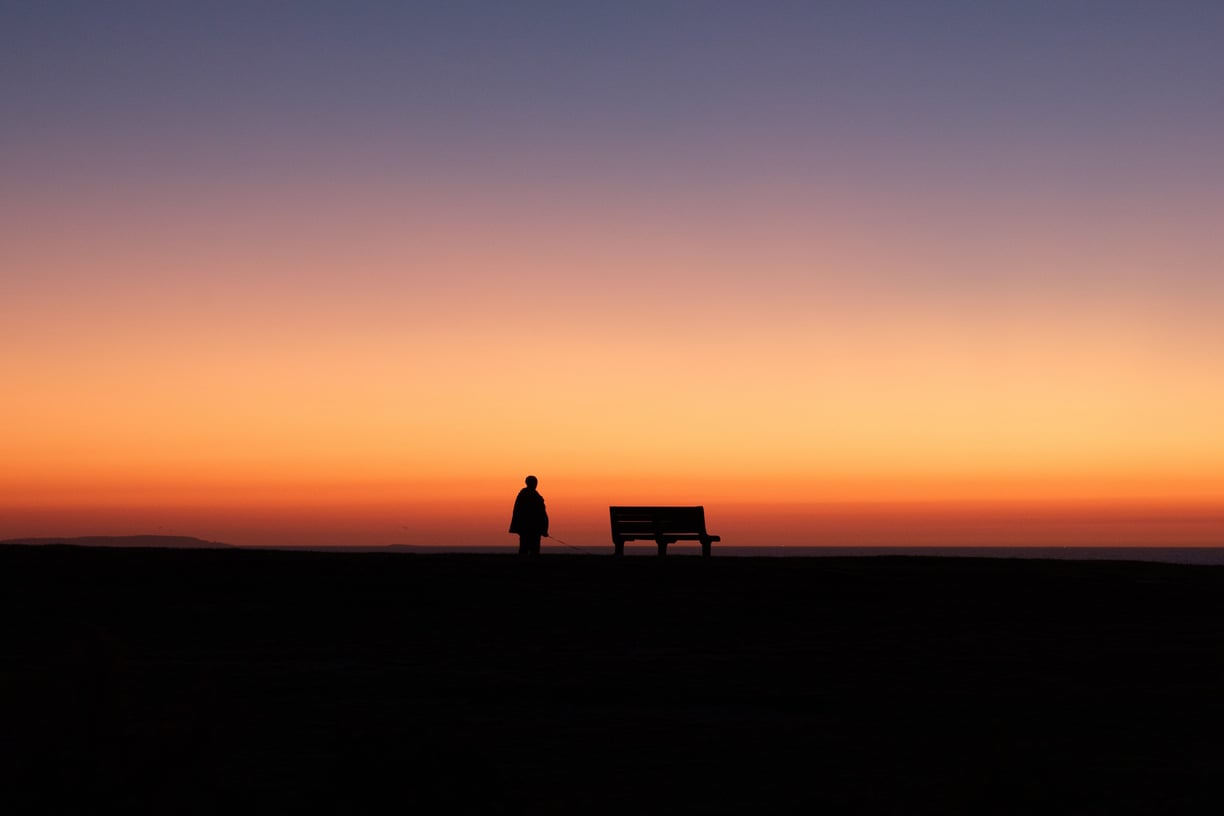

Nothing but the Sound of Crashing Waves by Nevin Johnson
Hope by Nevin Johnson
